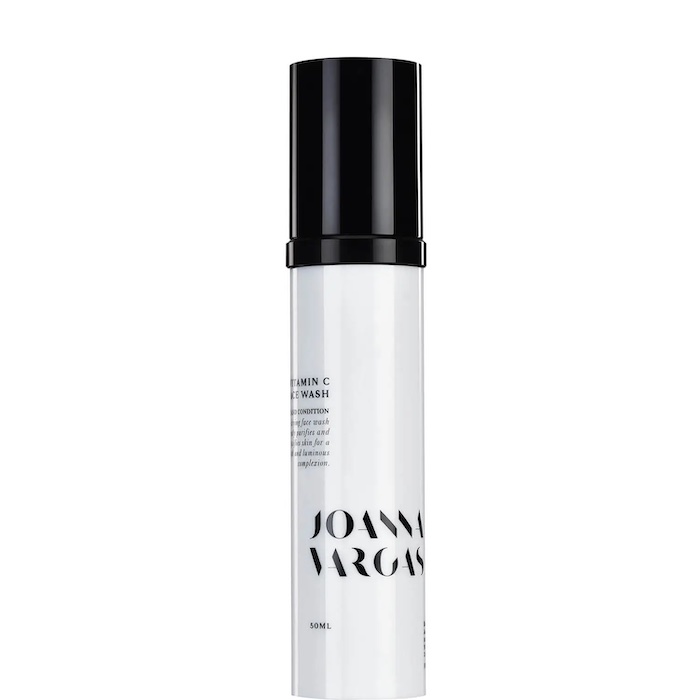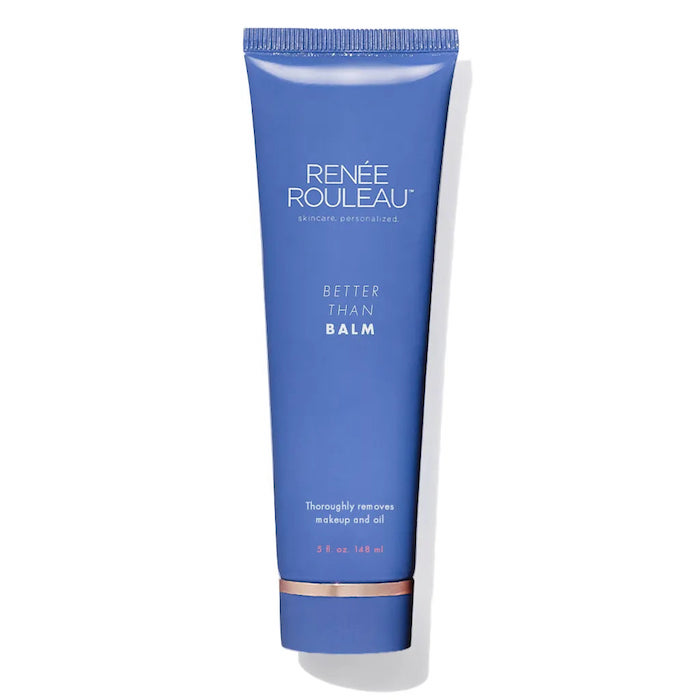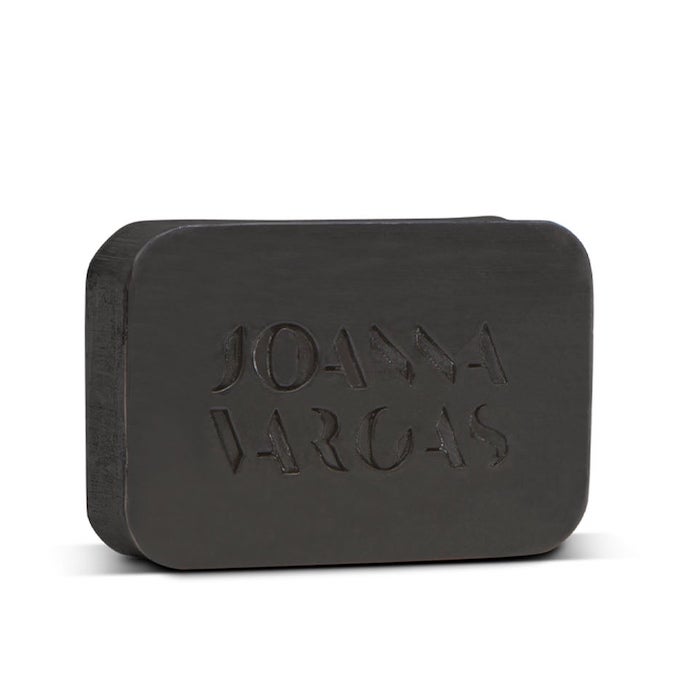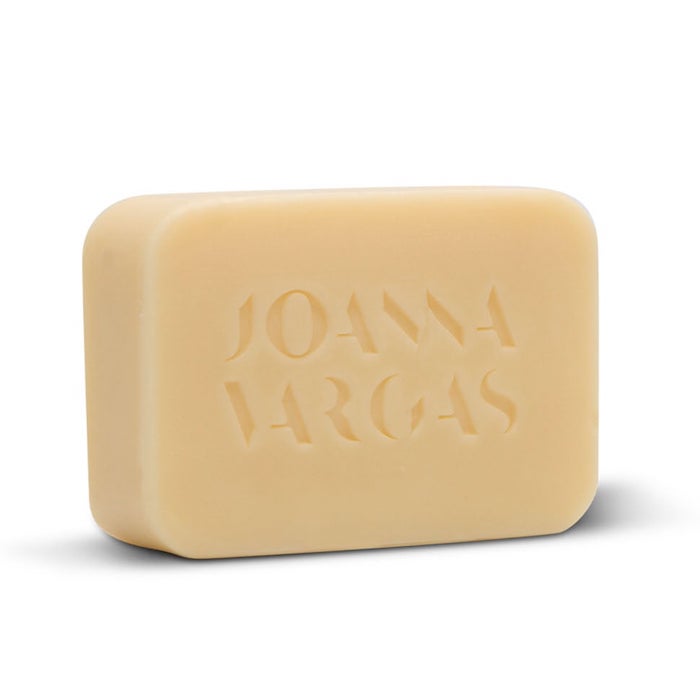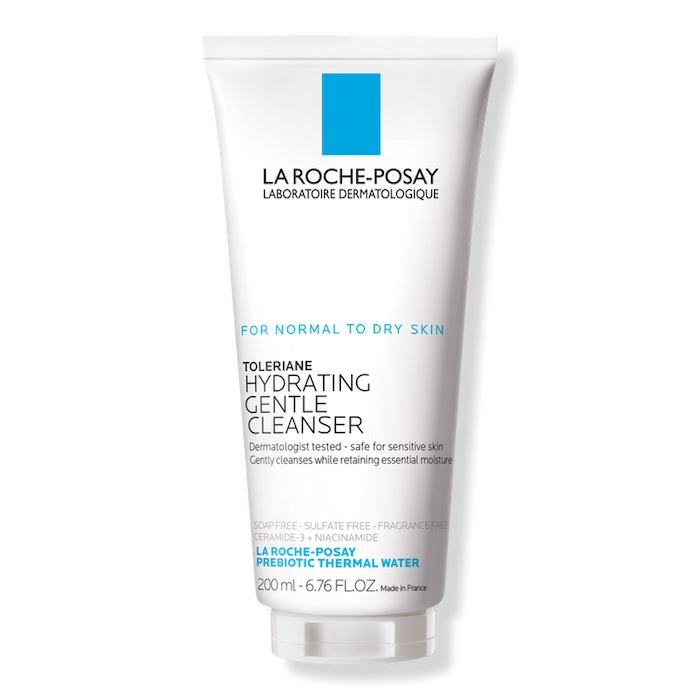The "Holy" Step in Your Skincare Routine That You're Probably Doing Wrong

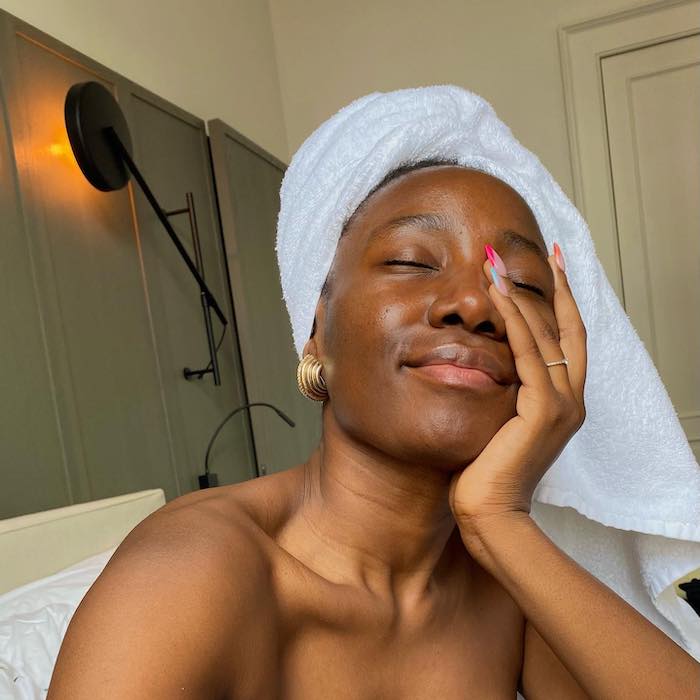
Think about your skincare routine. Which step do you consider to be most important? If you're like most people, you'd say the step you spend the most time and money on, which is likely a treatment step involving a serum or moisturizer. But what if we told you these steps are nothing without a very overlooked and underappreciated one? We're talking about cleansing.
Sure, it's not the most exciting step in our skincare routines, but aestheticians say it's the most important. Take it from Joanna Vargas, Celebrity Facialist, Founder of Joanna Vargas Salons and Skin Care, and Author of "Glow From Within." She calls cleansing the "holy" step. In fact, cleansing well is one of her seven top skin tips. "Lots of people, even aestheticians, are guilty of thinking the cleansing step is the throwaway step," she says. "It's the step you get done in two seconds to move on to the special stuff like serums, but the cleanse is the holy step. It's a time to be detail-oriented."
Celebrity aesthetician and skincare brand founder Renée Rouleau also asserts the importance of cleansing. "Cleansing is the foundation of any good routine and sets the tone for how effective the rest of your skincare will or won't be," she says. "When you apply a treatment product, be it toner, serum, or moisturizer, it will work best on a clean canvas. By properly removing sunscreen, makeup, dirt, and oil, your other products can properly penetrate and do their jobs effectively." Ahead, learn everything you need to know about cleansing the right way from these two celebrity aestheticians.

Cleanse Your Skin Every Single Night
This is a given, but also so important that it bears repeating. Vargas says going to sleep with clean skin is "absolutely vital" since "stress, pollution, and the sun are just some of the everyday offenders that will prematurely age you and cause breakouts and dull, lifeless skin."
"I think that a lot of people don't realize the importance of washing your face," she continues. "Leaving grime, dirt, and makeup on the skin will cause it to become inflamed, you will break out more easily, and be more susceptible to wrinkles. If you want your skin to do what you want it to do, you have to make a little time for yourself!"
Rouleau also stresses the importance of washing your face each night, adding that it's critically important to wash each morning. Doing so will remove any debris or excess oil that accumulated during the night as well as any treatment products that could make your skin more sensitive to the sun, like exfoliating acids and retinol.

Cleanse Your Skin for a Full 5 Minutes (Yes, Really)
This is Vargas's biggest cleansing tip out of them all. Instead of slapping on cleanser, foaming it up, and immediately washing it away, she recommends making your cleansing habit into a ritual, spending five full minutes on this step alone (seriously). While she admits this will feel "excruciatingly long," it's important if you want to actually remove sunscreen, makeup, dirt, and oil from your pores. "Spend a good five minutes washing your face while concentrating on doing mini circles and really penetrating the cleanser into the face," she says. "I like using my Vitamin C Face Wash ($40) because it's gentle and also gently exfoliates to wash off makeup and impurities."
She also recommends occasionally following up with exfoliation, specifically with her namesake Exfoliating Mask ($75). "This will stimulate collagen production, remove dead skin cells, brighten the skin, and products will penetrate better into the skin," she says. "I tend to scrub a little more carefully in my T-zone because that's an area that gets more oily and a common area to see blackheads."

Choose a Cleanser Based on Your Skin Type
Using the wrong cleanser is just as bad as not cleansing your skin effectively. Rouleau says if you don't choose the right formula for your skin type, you can risk everything from irritation to dehydration and a compromised moisture barrier. In other words, you're really rolling the dice, and no one wants to do that with their skin.
Luckily, Rouleau has tips for choosing the right cleanser for your skin type. Start by paying attention to the texture of the cleanser. "If you struggle with very oily skin, gel cleansers are the way to go," she says. "If your skin is on the drier side, you can opt for a creamy cleanser (or, if you wear heavier makeup or lots of sunscreen, a balm for nighttime). For those with combination skin, I usually recommend a gel cleanser in the morning and a creamy lotion or balm cleanser at night."
Just keep in mind the texture of the cleanser determines how it should be used. "Gel cleansers should be applied to wet skin, while cleansers with a cream, balm, or lotion texture should be applied to dry skin," Rouleau says. "If you apply a cleanser to dry skin, start by massaging it for 30 seconds. Then, add water to emulsify and massage." Once it's dissolved sunscreen, makeup, dirt, and debris, wipe or rinse your skin clean.

Choose a Cleanser You'll Actually Enjoy Using
If you don't enjoy using your cleanser, then what's the point? Yes, it must be suited to your skin type, concerns, and goals, but it's also important you don't hate using it. Otherwise, you'll dread this step and won't spend nearly enough time massaging it into your skin. "When choosing a cleanser, you have to be aware of how you like your cleansers to feel," Vargas says. That's why she created a variety of different cleansing formulas and textures. There's the aforementioned Vitamin C Face Wash ($40), which is a foaming cleanser. "I like foaming face washes best because you can remove all your makeup and it gets the day's dirt off in one minute," she says. "It contains salicylic acid and kojic acid, so it addresses texture, pores, and uneven skin tone."
She also has different bar soap options. Vargas recommends using the Miracle Bar ($22) if you have acne since it has charcoal to clean pores and reduce breakouts. If you have sensitive skin, she recommends using the Cloud Bar ($22) since it contains soothing chamomile and hydrating coconut. To sum it up, Vargas says, "Cleansers are very personal, so it really depends on the finish you want."

Use Active Ingredients, Avoid Sulfates
Both Vargas and Rouleau recommend using cleansers that contain a variety of skin-loving active ingredients. "I like cleansers that contain active ingredients like [exfoliating] acids or enzymes so you are keeping the texture and pores clean," Vargas says.
However, if there's one ingredient you want to avoid, it's sulfates. Take it from Rouleau. "Regardless of skin type, everyone should avoid cleansers with drying sulfates," she says. "Two of the most common examples are sodium lauryl sulfate and sodium laureth sulfate. These ingredients create a large lather and are great at cutting through oil, but they’re also very harsh and drying to the skin."
Instead of harsh sulfates, Rouleau recommends using cleansers with gentle surfactants like Cocamidopropyl Betaine, Sodium Lauroyl Oat Amino Acids, or Disodium Cocoyl Glutamate. "I also love cleansers that include hydrating ingredients since this is something all skin types can benefit from—I personally love to include ingredients like glycerin or panthenol," she says. "From there, you can start to look for ingredients that address your specific concerns. For example, if you’re acne-prone, salicylic acid is great. If you struggle with dullness, peppermint oil and vitamin C can give the skin a nice boost in circulation. For people who deal with redness, chamomile and green tea extracts can make a really nice addition to a cleanser."
Shop 10 Gentle Yet Effective Cleansers
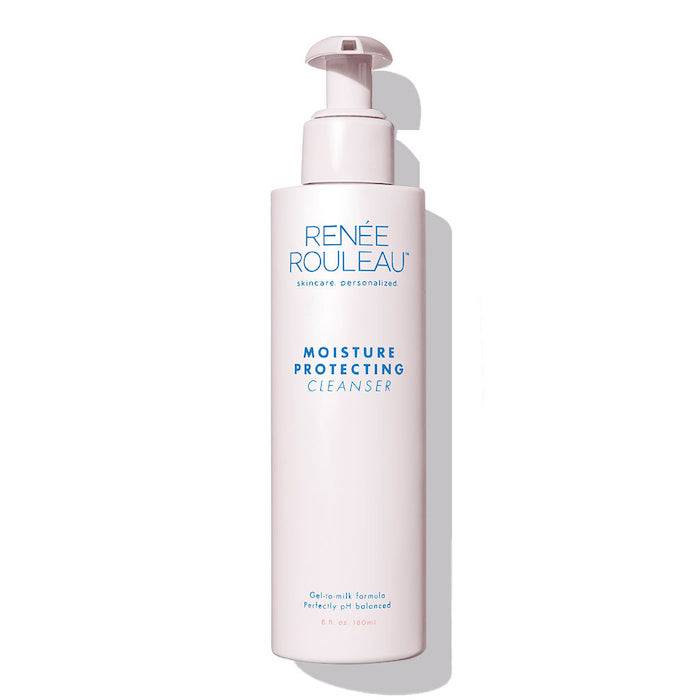
When it comes to a gel cleanser, I recommend this one, which is also from Renée Rouleau. I swear, my dehydrated, redness-prone skin loves it. The gel-to-milk formula offers a gentle cleansing experience, while ingredients like allantoin, glycerin, and aloe vera extract soothe and hydrate the skin. It's one of those rare formulas that cleanses well without stripping moisture.
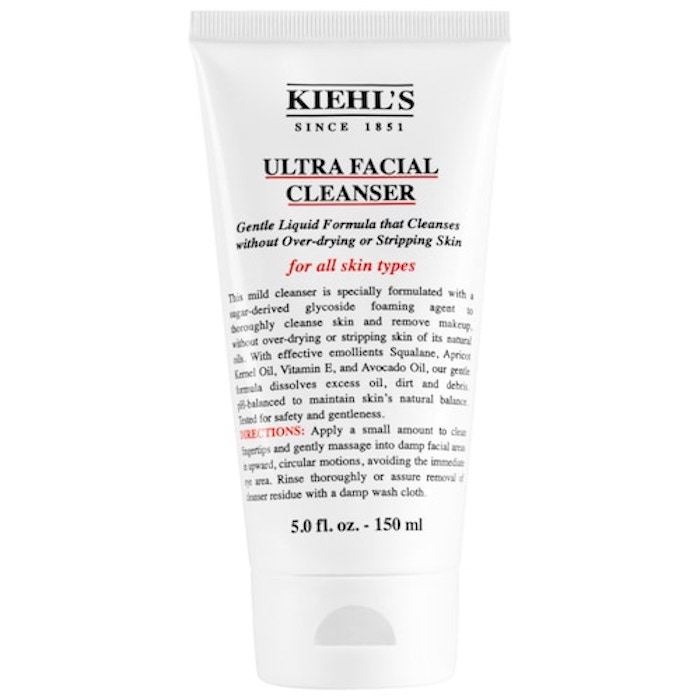
This classic foaming formula works great for people who have oilier skin since it wicks away dirt, oil, and debris without stripping moisture. It's all thanks to the addition of apricot kernel oil, avocado oil, and squalane,w hich moisturize the skin and support the natural skin barrier.
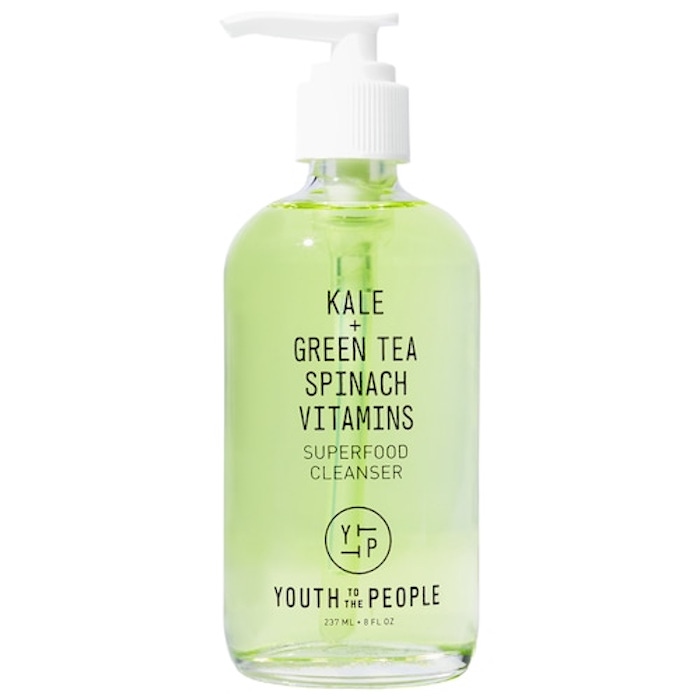
Formulated to be like green juice for your skin, this cleanser contains kale, green tea, and spinach. Together, these ingredients provide essential vitamins and antioxidants to the skin, while the foaming lather targets dirt, oil, and pore-clogging debris that could lead to future breakouts.
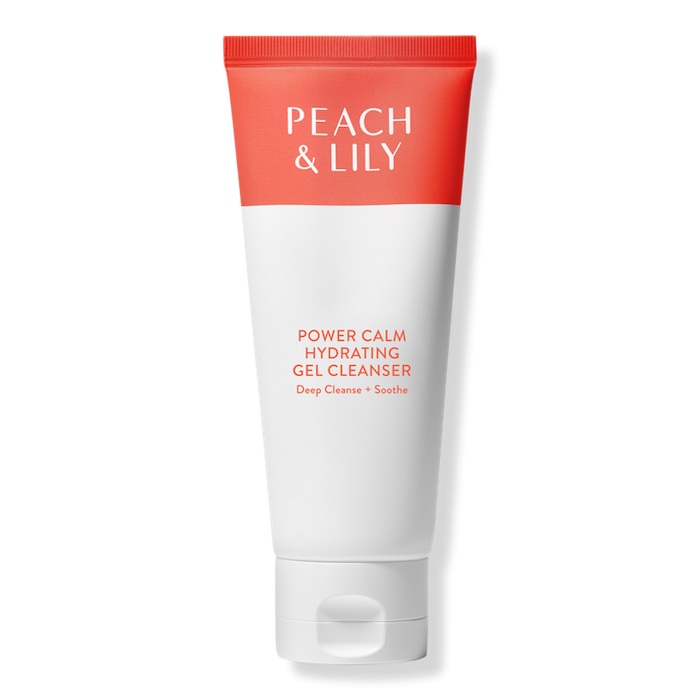
If you have sensitive skin, this cleanser is a must. Somehow (I haven't figured it out just yet), it cleanses the skin without contributing to redness or irritation. It probably has something to do with the fact that it's sulfate-free and formulated at a pH of 5.5 to support the skin.
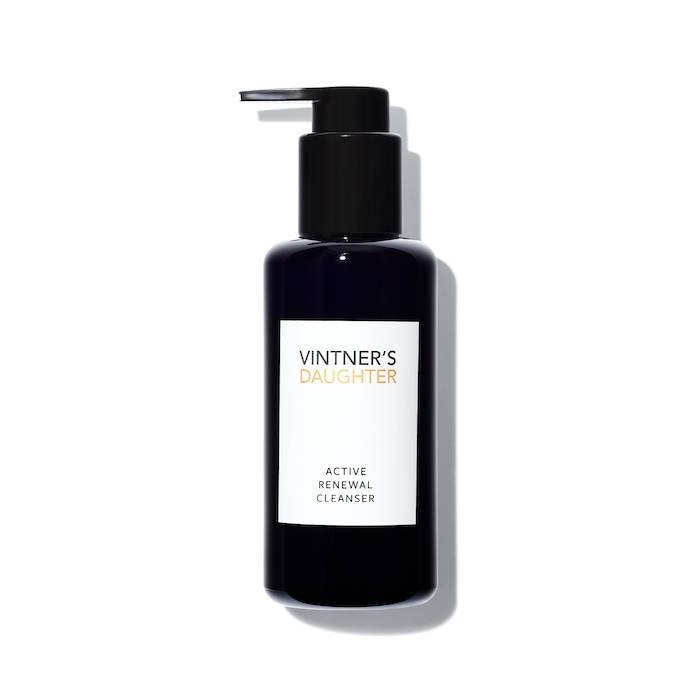
I've already waxed poetic about this cleanser, but it's worth mentioning again. It contains a whole list of soothing and hydrating botanicals to cleanse the skin while maintaining its moisture and integrity. Ingredients include alfalfa and bilberry, cypress and butcher's broom, ginkgo biloba leaf, Kakadu plum, dandelion, citrus peel, and mango-seed butter.
Next, Ectoin Is the Little-Known Skincare Ingredient That's About to Be Everywhere

Kaitlyn McLintock is a Beauty Editor at Who What Wear. She has 10 years of experience in the editorial industry, having previously written for other industry-leading publications, like Byrdie, InStyle, The Zoe Report, Bustle, and others. She covers all things beauty and wellness-related, but she has a special passion for creating skincare content (whether that's writing about an innovative in-office treatment, researching the benefits of a certain ingredient, or testing the latest and greatest at-home skin device). Having lived in Los Angeles, California, and Austin, Texas, she has since relocated back to her home state, Michigan. When she's not writing, researching, or testing beauty products, she's working through an ever-growing book collection or swimming in the Great Lakes.
